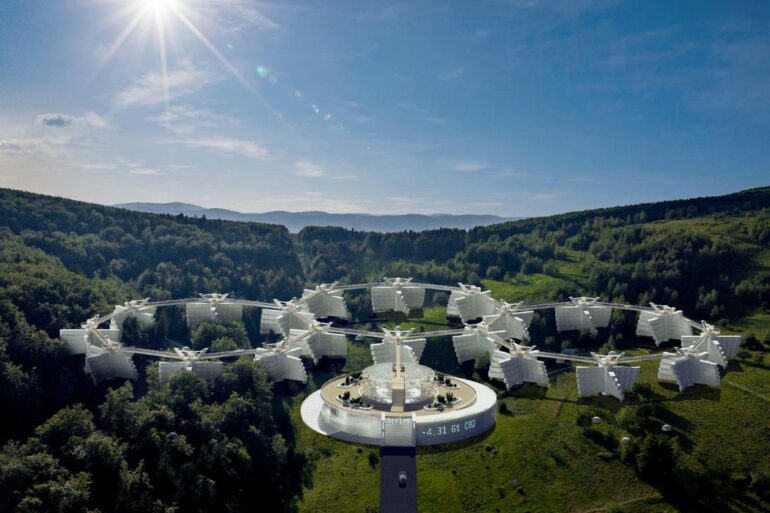The co-founders of Montréal-founded travel app Hopper have set out on a new venture to build large scale infrastructures in Canada that can capture carbon emissions at scale.
Frederic Lalonde and Joost Ouwerkerk, who founded Hopper in 2007, have teamed up with former Airbnb CFO Laurence Tosi to launch carbon capture startup Deep Sky. As reported by The Globe and Mail, the trio raised $10 million for Deep Sky from Brightspark Ventures and the Québec government, which are both investors in Hopper. The Globe also reported that Dakota Smith, president at Hopper, is a Deep Sky board member.
Deep Sky aims to raise $50 million to select a site and build a pilot project next year.
Ouwerkerk stepped back from an active role at Hopper in November 2022 and appears to have started to work on Deep Sky as CTO at the same month from his LinkedIn page. On the other hand, Lalonde told the Globe that he doesn’t plan to run Deep Sky as he will continue to lead Hopper as CEO. Although Lalonde personally invested $1 million in Deep Sky, he does not have a chief title.
Hopper is a travel booking marketplace that includes flight, hotel, car, and home rentals. As COVID-19 concerns and restrictions subsided in the last year, the demand for travel saw a major rebound. This gave a boost to travel booking platforms like Hopper, which raised $96 million USD in 2022.
Though the tourism industry has its benefits, it still leaves a significant carbon footprint. Scientists estimate that 11 percent of global greenhouse gas emissions are due to tourism.
Through their new startup Deep Sky, Lalonde and Ouwerkerk are piecing together existing technologies on the market to build large scale infrastructures across Canada that can capture carbon from past industrial activity.
The different technologies would come from Deep Sky’s network of partners, which includes Captura, Mission Zero, Skyrenu, and Carbyon. By assembling these companies’ carbon capture solutions, Deep Sky aims to develop vast facilities that can capture CO2 molecules from the open air and oceans, and bury them underground.
RELATED: Hopper closes $96 million USD from Capital One at more than $5 billion valuation
Demand for CO2 removal credits is increasing, as noted by Deep Sky. A carbon credit refers to one tonne of carbon dioxide that has been removed from the atmosphere. Companies can purchase carbon credits as a permit that allows them to emit a certain amount of carbon dioxide or other greenhouse gases.
In addition to raising funding from investors, Deep Sky said it plans to monetize its infrastructures by distributing “premium” carbon dioxide removal credits to compliance markets, voluntary markets, and government procurement.
As told to The Globe, Deep Sky aims to raise $50 million to select a site and build a pilot project next year.
Featured image courtesy Deep Sky.


